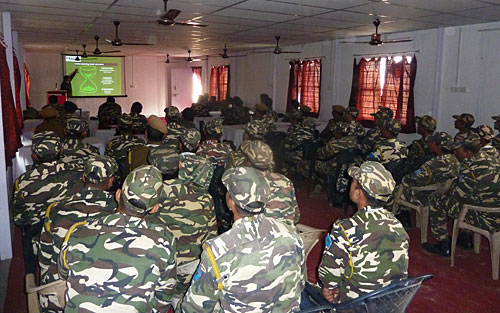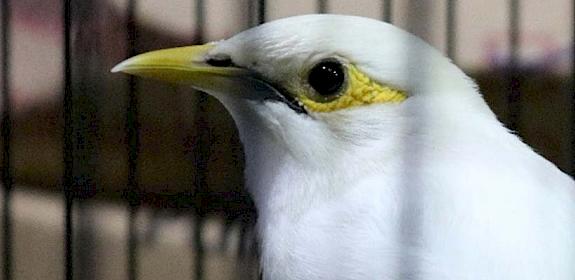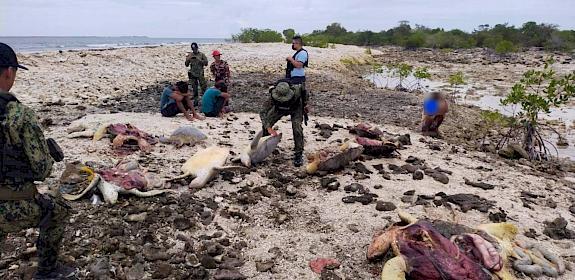Indo-Nepal border security forces receive boost to counteract wildlife crime
Bagaha, Bihar, India, 21st January 2013—TRAFFIC in association with SSB (Sashastra Seema Bal) held a two day workshop on “Strengthening Wildlife Law Enforcement and Conservation along the Indo-Nepal Border” at Bagaha, Bihar, from 16-17 January 2013.

The Indo-Nepal border is porous, allowing illegal wildlife traders the opportunity to smuggle wildlife products across the land borders. Security forces operating at checkpoints along the border therefore have a vital role as the first entry and last exit points to control smuggling activities.
40 SSB officers along with officials from various forest divisions of Madanpur, Valmikinagar, Gonali and Chiutaha were present at the workshop. During the two days, participants were given an overview of domestic and international trends in illegal wildlife trade, laws pertaining to this trade, the role of CITES (the Convention on International Trade in Endangered Species of Wild Fauna and Flora) in regulating wildlife trade, the latest tools and techniques available to fight wildlife crime, the significance of intelligence sharing, and an overview of global organized wildlife crime.
The workshop was inaugurated by Mr H Jiten Singh, 2nd in Command, 21st Battalion SSB Bagaha. Also present were Mr Nand Kishore, IFS, DFO-Valmiki Tiger Reserve, Mr Saurabh Sharma - Advocate from the Delhi High Court of India, Mr Roy Choudhury from the Wildlife Crime Control Bureau (WCCB) and Dr Rashid H Raza from TRAFFIC.
Mr Singh said the training would help SSB personnel and other participants understand the problems and enhance their knowledge and skills in dealing with wildlife crime. Such meetings provide a common platform for bringing together enforcement officials from various agencies to share their experiences and knowledge, he said, and he congratulated the efforts of TRAFFIC for supporting this process.
Dr Raza gave an overview of wildlife crime and trade. He noted that Tiger, Leopard and otter skins, Rhino horn, Red Sanders, live elephants and ivory, bear bile, live birds were among the wildlife products being smuggled to Nepal and beyond.
Mr Sharma discussed India’s Wildlife (Protection) Act, 1972 and other ancillary laws related to wildlife crime. He also provided an insight into the investigation of wildlife cases and the significance of rigorous evidence collection for effective legal action.
Mr Roy Choudhury gave an overview of the various modus operandi used by wildlife criminals. He emphasized the role the WCCB can play in assisting various enforcement agencies in combating illicit wildlife trade.
Resource material provided to the participants included printed materials, CDs, a copy of the Wildlife (Protection) Act, 1972, manuals on wildlife law enforcement, the TRAFFIC report into the owl trade in India, and a compendium of questions pertaining to wildlife raised in the Indian Parliament (Lok Sabha and Rajya Sabha) between 2004 and 2007.
Wildlife forensic sample collection kits, developed jointly by the Wildlife Institute of India and TRAFFIC, were also distributed to the participants and an ivory identification kit was also demonstrated. The kit has been designed to permit ivory examination on the spot, greatly assisting enforcement officers in their work.
This workshop was the seventh in a series organized jointly by Sashastra Seema Bal (SSB) and TRAFFIC.



